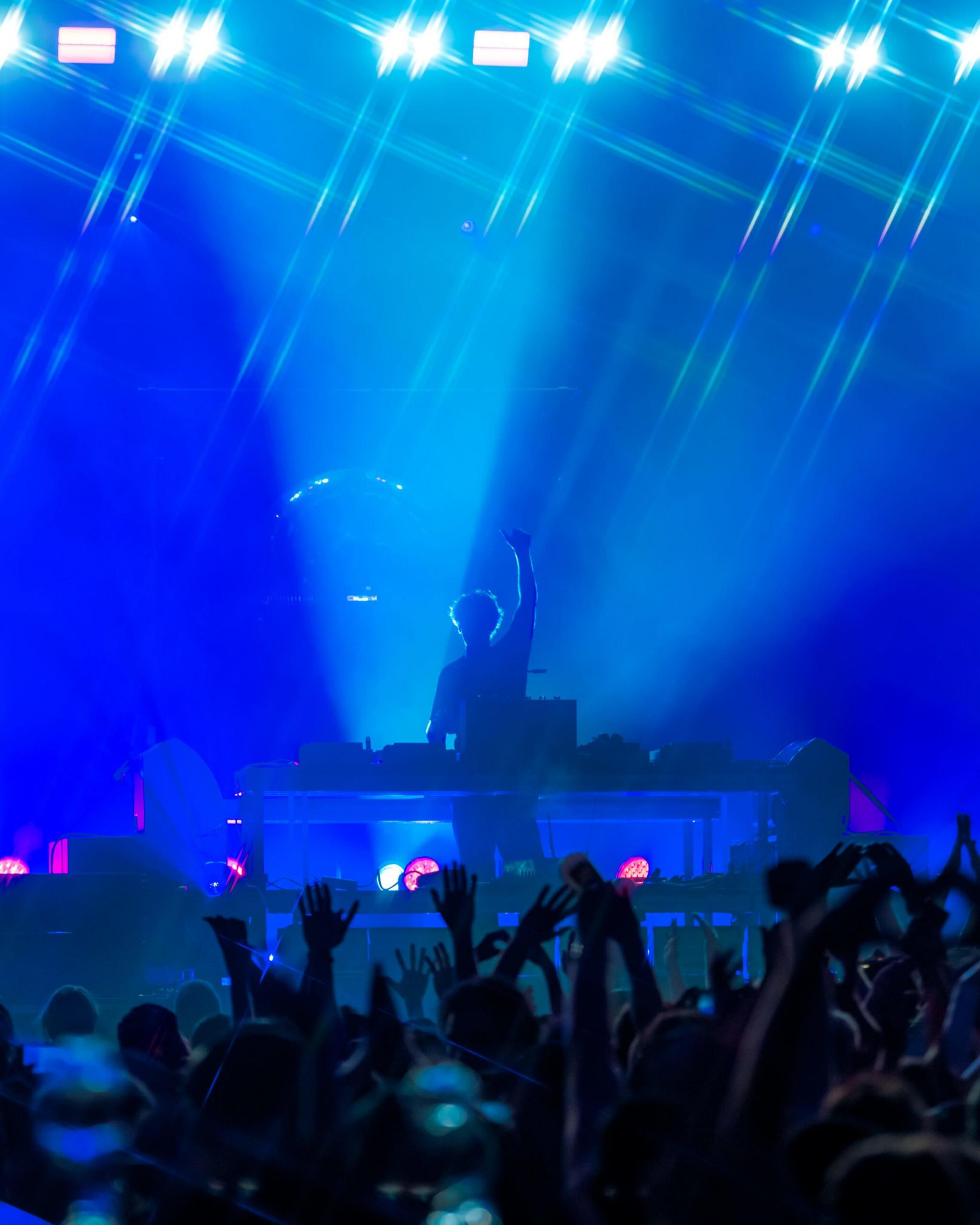Growing up in New York City, Danny Bell learned early in life that change is the only constant.
As a young adult, he frequented legendary clubs like CBGB’s and even debuted his very first band, Beef, on its sticker-covered stage—following in the footsteps of musical shapeshifters like Patti Smith, Television and the Ramones.
It was in that spirit of perpetual reinvention that Bell, who works as the head talent buyer for Goldenvoice, launched the Portola Festival—a colossal electronic music party that drew 30,000 people on each of its two days at San Francisco’s vast Pier 80 shipyard last September. Portola returns to the waterfront for its second year, Sept. 30 to Oct. 1.
The Standard caught up with Bell to learn more about the inspiration behind the festival. As Bell told us, he envisioned Portola as an autobiography of the underground rave culture that lured him to San Francisco in the first place.
“For me, it’s a passion project,” he said. “This is the kind of music I love and have been promoting over my whole career.”

Bell came of age in New York at a time when experimental artists like LCD Soundsystem and Dirty Projectors were beginning to introduce glitchy elements of electronic production to kids who grew up on guitar-driven indie rock. He said that after graduating from college in Los Angeles, he traveled up to San Francisco regularly to DJ shows at now-defunct clubs like Mezzanine and anonymous warehouses that he still can’t identify to this day.
“And everyone was just losing their minds there,” he said. “They went right into full throttle.”
When Bell made the permanent move to the Bay Area around 2016, he said he continued to be floored by both underground raves and the Outside Lands after-parties that coalesced around artists and producers like Jamie XX. That’s when the idea to create an electronic music festival on the edge of the city began to percolate. But it wasn’t until 2020—when Covid brought live music to a screeching halt—that the shape of the festival solidified.
According to Bell, Portola’s name is a nod to a 1907 street festival and parade that heralded the city’s comeback after the great earthquake. Bell said he conceived of his Portola the same way—as a celebration of the Bay Area’s triumphant rebound from Covid.
At the inaugural festival, Bell’s team was careful to balance mainstream electronic artists like future bass pioneer Flume with soulful genre-benders like Jungle, hybridized hip-hop from performers like Kaytranada and hyperpop trailblazers like Charli XCX. He told The Standard that the bill he assembled last year—and the as yet unannounced 2023 lineup—is meant to capture the full diversity of the electronic scene.
“This isn’t just neon colors and heavy synths and songs about love,” he said.

Like any good child of New York City, Bell is a loyal acolyte of David Byrne—the co-founder of Talking Heads. Referencing Byrne’s TED Talk (opens in new tab), he explained that while many believe electronic music emerged in industrial spaces purely because raves can fly under the radar in often-abandoned buildings and parking lots more easily, the warehouse rave phenomenon is also a function of EDM’s bass-heavy, pulsating sound.
“This style of music got really loud early on and really beat-driven,” he said. “So it’s the ideal place for music like this to be played—just like how opera houses have natural reverb and symphonic spaces have none.”
Likewise, Portola has found its home along the sprawling footprint of Pier 80, which comes outfitted with a cavernous warehouse and a signature crane.
Now that the post-Covid era and a looming recession has carved out widespread commercial vacancies throughout the Bay Area, Portola might just be cementing its status as a mainstay festival at a moment when underground rave culture can flourish. Citing Byrne once more, Bell said he believes San Francisco can mirror his hometown of New York City—a metropolis in a constant state of transformation (opens in new tab) in spite of difficult social circumstances.
Ideally, he said Portola will provide a backbeat to this inflection point.
“I see a lot of opportunity for San Francisco to reinvent itself again,” he said. “And I hope this festival is part of that.”
